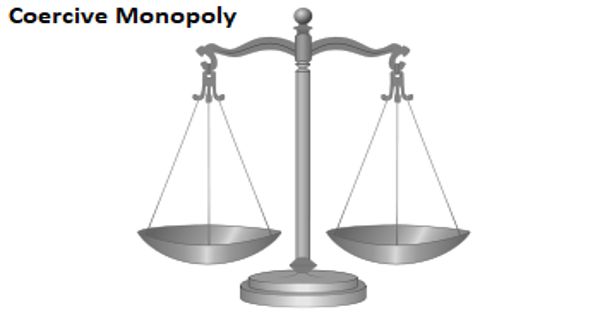According to a recent study, fundamental reforms in our economy are necessary to provide acceptable living conditions for all in the fight against climate collapse. For people all around the world to flourish while lowering global average energy usage in half, governments must substantially enhance public services, eliminate wealth gaps, scale down resource exploitation, and forsake economic development in affluent nations.
The study warns that unless such fundamental changes are made, we will face an existential dilemma: in our present economic system, the energy investment funds needed to turn away disastrous environment changes may subvert expectations for everyday comforts; while the enhancements in expectations for everyday comforts needed to end material neediness would require huge expansions in energy use, further fueling environment breakdown.
The study, led by the University of Leeds and published today (30 June 2021) in Global Environmental Change, looked at what policies could help countries use less energy while still providing ‘decent living standards for everyone, including food, water, sanitation, health, education, and livelihoods.
Jefim Vogel, Ph.D. researcher at Leeds’ Sustainability Research Institute, discussed the study’s findings: “Decent living standards are crucial for human well-being, and reducing global energy use is crucial for averting catastrophic climate changes. Truly sustainable development would mean providing decent living standards for everyone at much lower, sustainable levels of energy and resource use.”
“However, under the existing economic structure, no country in the world comes close to achieving this. Our economic system looks to be fundamentally mismatched with sustainable development goals: it is unsuited for the challenges of the twenty-first century.”
Professor Julia Steinberger of the University of Leeds and the University of Lausanne in Switzerland, who was also a co-author, added: “The problem is that in our current economic system, all countries that achieve decent living standards use much more energy than what can be sustained if we are to avert dangerous climate breakdown.”
According to the Intergovernmental Panel on Climate Change, global energy usage by 2050 must be as low as 27 gigajoules (GJ) of final energy per person to meet the Paris Agreement’s goals of reducing global warming to 1.5 degrees Celsius without relying on speculative future technologies. That implies current world average energy consumption (55 GJ per person) must be halved, while rich nations such as the United Kingdom (81 GJ per person) and Spain (77 GJ per person) must decrease their average energy use by up to 65%, and France (95 GJ per person) by more than 70%; the most energy-hungry countries like the USA (204 GJ per person) or Canada (232 GJ per person) need to cut by as much as 90%.
However, one big issue is that such drastic reductions in energy consumption might jeopardize living standards, as only nations with high energy use now have good living standards. Much the most energy-efficient nations, such as Argentina (53 GJ per person), Cyprus (55 GJ per person), and Greece (63 GJ per person), consume at least double the ‘sustainable’ amount of 27 GJ per person, and many uses even more.
On the other hand, substantial portions of the population in all nations with energy usage levels below 27 GJ per person are now living in perilous conditions; for example, in India (19 GJ per person) and Zambia (23 GJ per person), where at least half of the population is deprived of basic requirements.
Reduced energy usage in rich nations looks to be undermining living standards, while increasing living standards in less affluent countries would necessitate substantial increases in energy use, further exacerbating climate breakdown. However, as the researchers demonstrate, this is not unavoidable: fundamental changes in economic and social priorities could resolve this dilemma of sustainable development.
“Our findings suggest that improving public services could enable countries to provide decent living standards at lower levels of energy use,” said co-author Dr. Daniel O’Neill of Leeds’ School of Earth and Environment. “Governments should offer free and high-quality public services in areas such as health, education, and public transportation,” he added.
“We also discovered that achieving good living conditions while using less energy requires a more equitable income distribution. Governments might boost minimum wages, offer a Universal Basic Income, and establish a maximum economic level to alleviate current income inequalities. We also need significantly higher taxes on high-income earners and significantly lower taxes on low-income earners.”
The study team discovered that inexpensive and dependable access to power and modern fuels is also critical. While this is nearly universal in rich nations, billions of people in low-income countries still lack it, emphasizing critical infrastructural requirements. The most important and probably most shocking result is that economic growth above modest levels of wealth is harmful to long-term development goals.
Professor Steinberger explained: “In contrast with wide-spread assumptions, the evidence suggests that decent living standards require neither perpetual economic growth nor high levels of affluence.”
“In reality, in rich or even moderately affluent nations, economic expansion is harmful to living standards. It’s also inherently unsustainable: economic development is inextricably linked to increases in energy use, making the energy reductions necessary to combat climate change almost unattainable.”
“Another detrimental factor is the extraction of natural resources such as coal, oil, gas or minerals these industries need to be scaled back rapidly.”
Lead-author Jefim Vogel concluded: “In short, we need to abandon economic growth in affluent countries, scale back resource extraction, and prioritize public services, basic infrastructures, and fair income distributions everywhere.”
“Rich nations could reduce their energy usage and emissions while maintaining or even improving living standards, while less affluent countries could achieve good living standards and eradicate material poverty without needing enormous quantities of energy if these policies were in place. This is fantastic news for climate justice, human well-being, poverty eradication, and energy security.”
“However, we must recognize that attaining this goal would need a larger, more fundamental reform of our growth-driven economic system. Degrowth, in my opinion, is the most promising and comprehensive vision for the needed transition, and it is a concept whose time has come.”
















